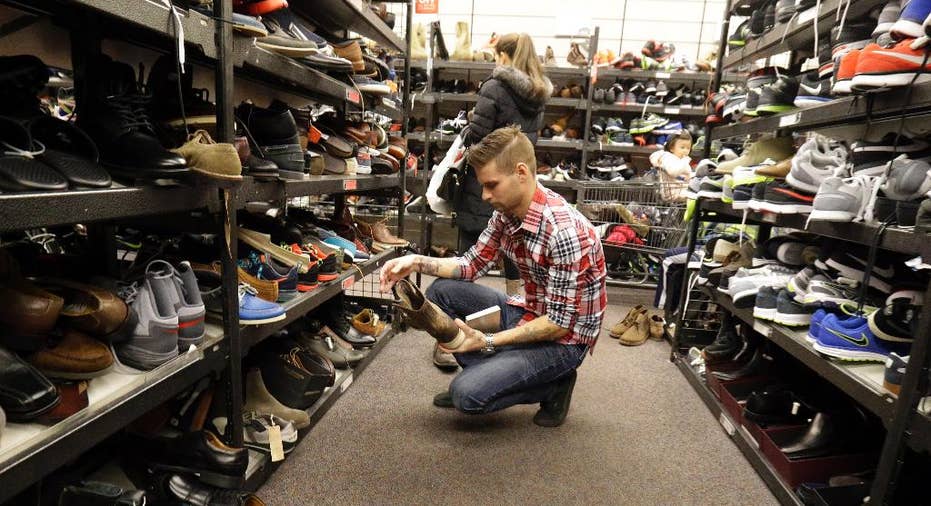Falling gas station receipts likely held back US retail sales; ex-gas, sales probably grew

WASHINGTON – The Commerce Department releases retail sales data for December on Wednesday at 8:30 a.m. Eastern.
GAS PRICES HIDE BIGGER GAIN: The ongoing steep drop in gas prices likely held back growth in retail sales last month. Economists forecast that sales rose a seasonally-adjusted 0.1 percent in December, according to a survey by the data firm FactSet.
That would follow a healthy 0.7 percent gain in November, an increase that occurred despite the diminished falling gas station sales. November's gain was an early sign that Americans are spending their savings from cheaper gas on other goods and services, boosting the economy.
Excluding the volatile categories of gasoline, food, building materials and autos, economists at JPMorgan expect that sales rose 0.4 percent, a solid gain but below November's 0.6 percent gain.
STRONG HOLIDAY SALES EXPECTED: Wednesday's figures will close the books on last year's holiday shopping season, which appears to have finished strongly after a weak start over the Thanksgiving weekend.
Data provider ShopperTrak said last week that retail sales rose 4.6 percent in November and December, the healthiest gain since 2005.
But those data don't include online sales, which are included in the government's figures. The National Retail Federation will release its holiday sales results, based on the government data, on Wednesday.
Gasoline costs have followed oil prices steadily lower since last summer and now stand at an average of $2.12 a gallon nationwide, according to AAA. That is near the lowest level in more than five years and down from $2.58 just a month ago. AAA estimates that Americans spent $14 billion less on gas in 2014 than the previous year.
Some of those savings have gone toward purchasing new cars. Auto sales jumped 6 percent in 2014 to 16.5 million, according to Autodata. That was the biggest year for the industry since 2006. Sales slowed a bit in December from the previous month, however, which could also weigh on the retail sales figures, which include auto dealers.
Healthy job gains have also helped. There are nearly 3 million more Americans earning paychecks than a year ago. The unemployment rate has fallen to a six-year low of 5.6 percent.
Those gains have yet to translate into fatter paychecks. Hourly pay increased just 1.7 percent in 2014, barely ahead of the 1.3 percent inflation rate.
Still, economists expect consumers will spend big this year, providing a solid contribution to the economy.
Measures of consumer confidence are at or near seven-year highs. Layoffs have fallen, providing greater job security. Americans have pared their debts, leaving their finances in much better shape.
And for richer Americans, the stock market has boomed in the past two years, providing additional wealth to spend.



















